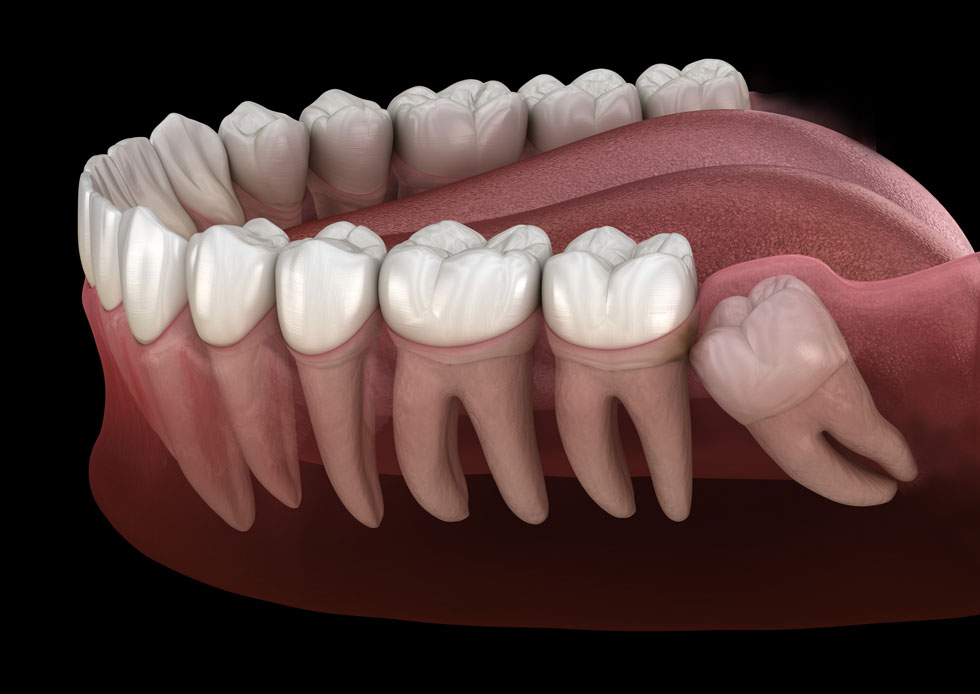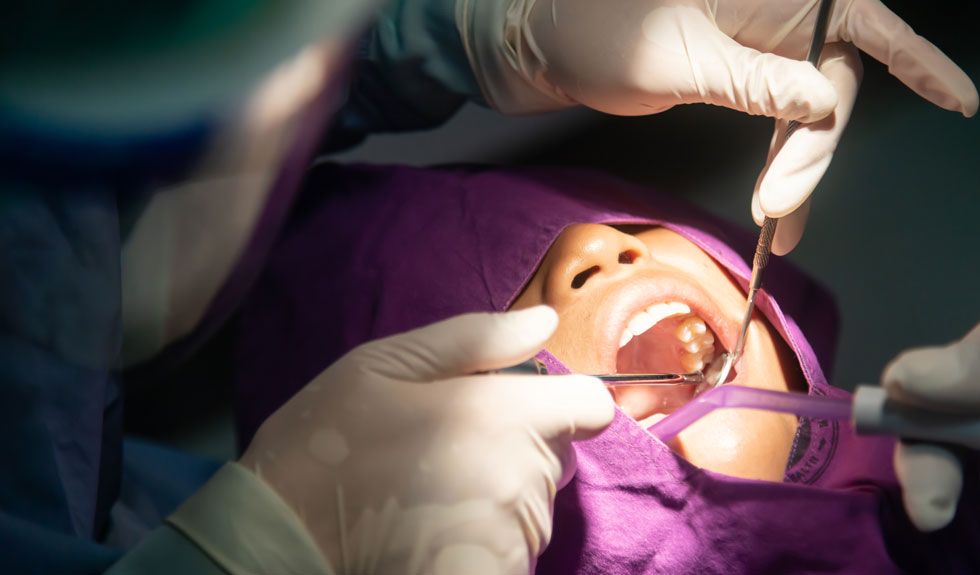Tooth Trouble
Impacted wisdom teeth can displace or erode neighboring teeth, posing risks undetectable without X-rays. Being challenging to clean, they are prone to cavities, causing pain, a persistent foul taste, or jaw/gum swelling, indicating a need for prompt dental attention.
Extraction
Extraction decisions involve assessing in-clinic feasibility, usually performed under local anesthesia. Complex cases may require specialist referral for roots near sinuses or nerves. Post-extraction, protecting the blood clot over the nerve is crucial for a comfortable recovery. Loss of the clot leads to ‘dry socket,’ requiring immediate dental attention.
Recovery
Recovery involves adhering to prescribed pain medications, avoiding straws or smoking to protect the clot. Despite quick healing, initial days favor liquid diets progressing to textured foods. Any concerns about wisdom teeth or other dental services can be addressed by contacting our clinic.


